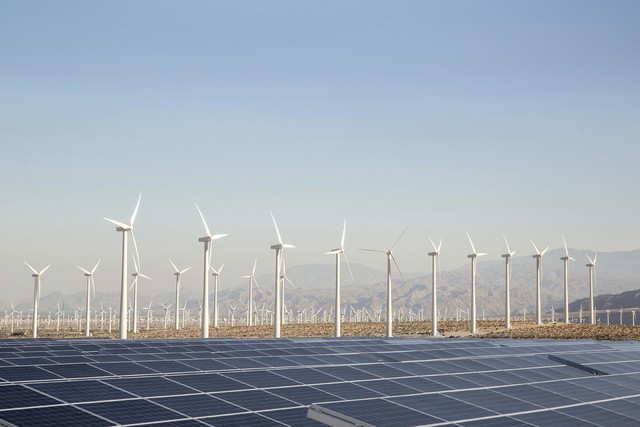Viet Nam’s potential as powerhouse for renewable energy
VGP - Viet Nam has every opportunity to become a global leader in renewables, according to entrepreneur.com.

Viet Nam owns potientials to become a global leader in renewables
The website recently posted an article themed "Why Investors Should Look at Viet Nam's Renewable Energy Industry."
Viet Nam realizes that the need for a green energy transition has never been more urgent. As one of Southeast Asia's fastest-growing economies, the country has proved its commitment to the initiative, particularly when it comes to solar power.
At the 2021 United Nations Climate Change Conference, members of the Vietnamese government headed by Prime Minister Pham Minh Chinh promised carbon neutrality by the year 2050. For Viet Nam, a still-developing country, to realize this goal, it would have to phase out coal plants and modernize its national grid.
According to the World Bank, Viet Nam currently has the most comprehensive installed solar power capacity in Southeast Asia, with 16,500MW generated in 2020. Moreover, the country was among the Top 10 nations globally, with the most solar energy capacity installed in 2020.
According to the International Energy Agency, Viet Nam is Southeast Asia's second-largest electricity user. Energy consumption in the region is among the world's fastest-growing, with demand rising at a steady 6% per year over the past 20 years.
The Vietnamese Government's commitment to increasing energy supply and significant public demand for better air quality has been a major driving force. Supporting governmental legislation and policies, including feed-in-tariffs (FiT), attractive tax incentives and land lease waivers are also regarded as fundamental elements fueling the country's massive renewable energy (RE) growth.
Public desire for environmental preservation is the second most significant factor. Furthermore, severe air pollution in metropolitan areas has sparked public opposition to new coal power plants, and local water and other resource issues have also been a cause of worry./.
